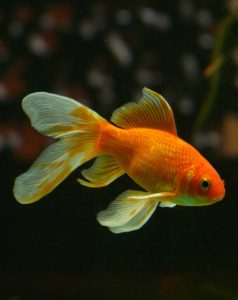According to the National Alliance on Mental Health, in just one year alone, at least 1 in 5 Americans will suffer from either poor mental health or a mental illness; that’s approximately 43.8 million Americans every single year.
If you suffer from a mental illness, the most important thing to remember is that you are not alone, and there are millions of other people who share your struggles.
Whether or not animals help with mental health is a topic that has been debated for many years.
Due to many years of extensive media coverage and comprehensive research studies, though, more information has become available to the public through different articles and books.
Do Pets Help with Mental Health?
Animals as both pets and therapy service companions has been conceptualized since the 1960s with Dr. Boris Levinson’s research.
Dr. Levinson’s research has been the catalyst for many modern studies that have produced incredible results.
Studies have shown many things, but most importantly, they have shown that simply having an animal present at the time of a therapy session can help a patient – especially a child – feel at ease, a phenomenon known as the therapeutic alliance.
Animals provide company while aiding in relieving loneliness, stress, depression and anxiety.
After reading this, you may be considering adopting an animal to bring into your home.
Before taking this big step, however, it’s important to consider which future furry family member will work best in your life.
It is also important to remember that, while a pet can definitely help you cope with your mental illness, they are not a miracle cure.
What are the Best Pets to Boost Mental Health?

Lions, and tigers, and bears – oh my! There is such a wide variety of pets in the world that picking the right one that will not only fit perfectly in your home but will also improve – rather than harm – your mental health can be difficult.
It’s important to take a lot of factors into consideration when choosing an emotional service animal.
If you struggle with chronic fatigue, you don’t want a high maintenance animal.
A dog with lots of energy, a longhaired cat that requires strenuous grooming – if you’re unable to properly care for the pet, it’ll lead to worse problems in the future.
Thankfully, scientists have conducted studies that have taken a lot of the struggle of choosing the perfect pet out of the equation.
Below is a list of the best animals for anxiety, depression, and other mental illnesses, along with information to help you decide which animal is best for you.
Dogs
It’s no surprise that dogs are at the top of this list. Dogs, with their characteristic unconditional love and cheerful personalities, are great pets for boosting mental health.
Plus, with such an interesting variety of breeds, you’re almost guaranteed to find a breed that works best for you.
If you look online, you’ll find countless websites featuring the top dog breeds for emotional support.
On nearly every single one, you’ll find breeds such as Golden Retrievers, Chihuahuas, and even some gentle giants like Irish Wolfhounds and Great Danes.
Each breed offers a unique and fulfilling friendship, along with several health benefits.
Benefits
 Studies show that dogs offer an abundance of health benefits, both mental and physical.
Studies show that dogs offer an abundance of health benefits, both mental and physical.
They can reduce stress, anxiety, depression, and loneliness. Dogs can also help you connect with the people around you; at dog parks, on walks around the blocks – dogs are instant conversation starters.
Along with those benefits, dogs can also help you stablish a sense of self-worth and responsibility. Every day, you’ll have to care for your dog – walks, feeding, grooming.
This encourages you to get out of bed every day – even if it seems impossible to do – and to interact with the world around you.
It also helps you to feel a sense of accomplishment every day; there’s no greater feeling than knowing you took care of yourself and another creature during the day.
On the physical side, owning a dog has been proven to lower blood pressure and increase good chemicals in the brain.
They also are a great source of exercise due to the care they require – walks and play time are a great way to get active while having fun.
Dogs can also be a big responsibility, though, so make sure you’re ready to handle the care that is involved in owning one.
Care
While dogs aren’t the hardest pet to take care for – they’re definitely still beginner friendly so don’t worry! – they are a bit more difficult than other pets like fish.
Mainly, there are a few things to consider when choosing a furry friend including:
- Energy
- Grooming
- Health
First, it’s important to pick a pet whose energy level fits your lifestyle best.
Some dogs are rather sluggish and are the couch potatoes of the canine world; on the other hand, some dogs are hyperactive and will require a lot of attention and exercise.
Dogs also have obvious physical difference – fur lengths, folds, squashed faces – that require different grooming routines. Dogs with lots folds or long hair will require much more grooming than others.
Finally, some dogs such as Great Danes have a lot of genetic health issues that are important to consider.
While it does require work, owning a dog is a very interesting experience that provides life-long friendship and health benefits.
Cats

If you aren’t a dog person, cats make great companions too! Cats offer all the great emotional benefits that dogs do – including relief from stress, anxiety, and depression – while still maintaining an independent personality that doesn’t require nearly as much hands-on care.
Cats often have a bad reputation for being cold, standoffish, and generally unloving, but any cat owner can tell you that isn’t true.
In fact, most cats enjoy sleeping in the bed with their owners at night, laying on the couch with their owners, and just being in the general presence of their owners.
Benefits
Cats offer the same emotional benefits as dogs do. They’re loving companions that will reduce mental illness related symptoms – stress, anxiety, depression, and loneliness – while also helping you to feel just as accomplished throughout your day.
Unless you’re actively taking your cats on walks, however, other than the general decrease in blood pressure and the production of good chemicals, you won’t see a lot of the fitness or social based benefits.
However, cats love toys, and these can provide some exercise for both you and your pet.
Care
Cat care is just about as diverse as dog care, so it really depends on the breed of cat you adopt.
The considerations for dogs as apply to cats. In general, though, cats are much more independent than dogs and require less care.
Most groom themselves regularly, so the occasional bath and brushing will be more than enough to keep their coats healthy.
You will also need to either train your cat to use the bathroom outside or buy a litterbox.
I’ve owned a lot of cats in my life – over 5! – and I have found that using a litterbox is the best method for my fur family.
While letting your cat outside may be more convenient, it opens the door for a lot of potential danger, such as wild animals, cruel neighbors, or traffic, that could lead to your cat becoming seriously injured.
Owning a cat is an incredibly rewarding experience, and, if you consider adopting one, you’ll find a forever friend.
Fish
 Fish are the unspoken heroes of the mental illness world. My first semester in college, I was suffering from poor mental health due my new environment away from my friends and family.
Fish are the unspoken heroes of the mental illness world. My first semester in college, I was suffering from poor mental health due my new environment away from my friends and family.
Within a month, I purchased a fish – a crown-tail betta named Milo – and he quickly became my best friend.
Just sitting at my desk with him while I did my work helped me feel better emotionally, and I was able to get more work done too.
It’s no surprise then that there are dozens of studies that talk about the abundance of mental health benefits fish provide while remaining a generally low maintenance fish.
Benefits
Lower stress levels? Check. Feelings of calmness? Checked. Production of good chemicals in your brain? Check! Fish offer an abundance of benefits that most people don’t take into consideration.
Most people say that fish are boring pets, but I can assure you that is not the case. In fact, most fish can recognize their owners faces and perform basic tricks.
Just watching them swim, however, can produce feelings of calmness. In fact, this study from the 80s shows that owning fish can decrease anxiety levels by 12 percent. That’s a great change.
While not related to mental health, owning fish has also proven to help kids with diabetes manages their illness.
Also, you can receive all of these amazing benefits without a lot of care.
Care
Fish are relatively simple to take care of. They need really just three things:
- A clean tank
- A well decorated tank
- A proper diet
Now, the first one is obvious. Fish live, sleep, and use the bathroom in their tanks, so it’s important to clean it regularly in order to keep it a healthy environment for your fish.
For my betta, I made sure every single week, twice a week, that I did partial water changes.
This involved me removing half the water from his tank and replacing it with fresh, room temperature water.
I did not remove him from his tank for these biweekly water changes, so making sure the water is room temperature is important; water that is too hot or too cold can send your fish into shock.
Then, once a week, usually on the weekend when I could really dedicate time to it, I would do a full water change.
 This involved moving Milo from his tank into a separate container while I cleaned his tank. I would dump his water, clean his rocks and plants, and scrub the sides of his tank.
This involved moving Milo from his tank into a separate container while I cleaned his tank. I would dump his water, clean his rocks and plants, and scrub the sides of his tank.
Make sure that you never use any type of soap! Warm water is enough to clean a fish tank.
After that, I would refill the tank with water, reposition his plants and rock formations, and then let it sit for at least an hour. After that, I would carefully put him back in his tank.
Now, depending on the size of your tank, this can vary. Big tanks with natural cleaners like snails won’t need nearly as many cleanings as small tanks like the one I had.
Next, the tank needs to be well decorated. This isn’t just for aesthetic value, though.
In their natural habitats, fish live places like rice paddies (betta), coral reefs (tropic fish), or in muddy water full of vegetation (bass, catfish).
These areas are safe spots for the fish to go to help prevent them from suffering from anxiety. Natural plants also help keep the water full of oxygen and clean.
If you have other aquatic animals like shrimp or snails, which are also great natural cleaners, rock formations will make great places for them to exist too.
Finally, different fish need different diets. Some fish need food that floats, while others need food that floats to the bottom.
Other times, one fish needs a protein-based diet including insects and other critters like mealworms. Betta fish, for instance, need a special food designed just for them.
Fish that lack the right food can quickly become malnourished and diseased, so this step is the most important.
There’s a reason that fish are usually a person’s first pet. Surprisingly fun, fish are great pets for everyone, no matter where they live.
Birds
 Depending on where you live, you may not even have to buy a bird to enjoy the mental health benefits of them.
Depending on where you live, you may not even have to buy a bird to enjoy the mental health benefits of them.
Birds are another animal that helped me with my mental health in college.
My bed was by the window, and there was a tree; every day, especially when I was stressed or overwhelmed, I would just sit in my bed and watch the birds on the branches outside my window.
It would always help relax me, and I would always feel better afterwards.
I’m not the only one who feels this way, either. Studies show that people who regularly experience nature such as trees, shrubs, and – that’s right – birds often suffer from less mental illness, especially anxiety and depression.
Owning a bird allows you to constantly reap these benefits while making a wonderful, unique friend!
Whether their singing, talking, or just chirping, birds create a wonderful, peaceful environment, and it’s nice to just be in their presence.
Benefits
Much like fish, you shouldn’t expect to see a lot of physical benefits from owning a bird. You won’t get a lot of extra exercise or meet new people.
However, owning a bird does produce the same emotional benefits as owning a dog, cat, or fish.
You’ll find that you feel less stressed, anxious, or depressed. Your brain will produce good chemicals that will also boost your mood.
You’ll even find that, like with the other animals mentioned in this list, that your blood pressure will decrease.
Care
Birds, while not as easy as fish, are relatively easy to care for. They require fresh food and water every single day; they’ll need a roomy cage, and, like with a litterbox, you’ll have to clean it often.
Depending on the size of the cage, you should clean droppings and spilled food from the bottom of the cage at least every other day in order to maintain a happy and healthy environment for your bird.
Like with fish, birds come from different areas in the world, and their diet reflects that.
Some need a meat-based diet, while other types of birds are just as happy with seeds, fruits, and berries. It’s important to do your research before deciding on what type of bird to get.
 Some birds, like parakeets, are also more playful than other types. These birds will need a larger cage with plenty of toys to help keep them from becoming depressed.
Some birds, like parakeets, are also more playful than other types. These birds will need a larger cage with plenty of toys to help keep them from becoming depressed.
On the other hand, you’ll be able to play with these birds and bond in a unique way.
Even if you don’t own a bird, you can still care for the wild ones.
For starters, it’s important to think about the type of birds you want nearby. I personally like to keep cardinals nearby.
Their unique call almost sounds like ‘cheer’, and it’s a great way to start my day every morning.
In order to attract them to my yard, I keep some places in the bushes untrimmed in order to provide proper nesting spots for them.
Some birds also prefer bird houses at different heights. Try experimenting to see what you can attract!
Leaving out different foods is another great way to bring in birds due to their various diets. You can also add a bird bath to create a place for them to bath and drink.
Whether they’re wild or your pet, birds each have unique personalities and can make a great addition to your home.
Final Thoughts
 More people in the world than you would think suffer from mental illness, and it is absolutely nothing to be ashamed of.
More people in the world than you would think suffer from mental illness, and it is absolutely nothing to be ashamed of.
While a pet may be able to help relieve some of the symptoms of your mental illness, it is still important to reach out – to a family member, a friend, or even a professional.
If you’re unsure of where to start with getting help, Mental Health America is a great place to start.
They offer both emergency and preemptive services, and MHA can connect you with a therapist, support groups, or even hospitals in the event of a mental health crisis.
If anonymity is what you seek, you can also find many services online such as a Lifeline Crisis Chat.
There are even different hotlines you can call for help, including:
The American Foundation for Suicide Prevention: 1-888-333-2377
Anxiety and Depression Association of America: 240-485-1001
You can find the whole list of hotlines at the National Alliance on Mental Illness.
No matter what method you choose, the important fact is that you sought help.

